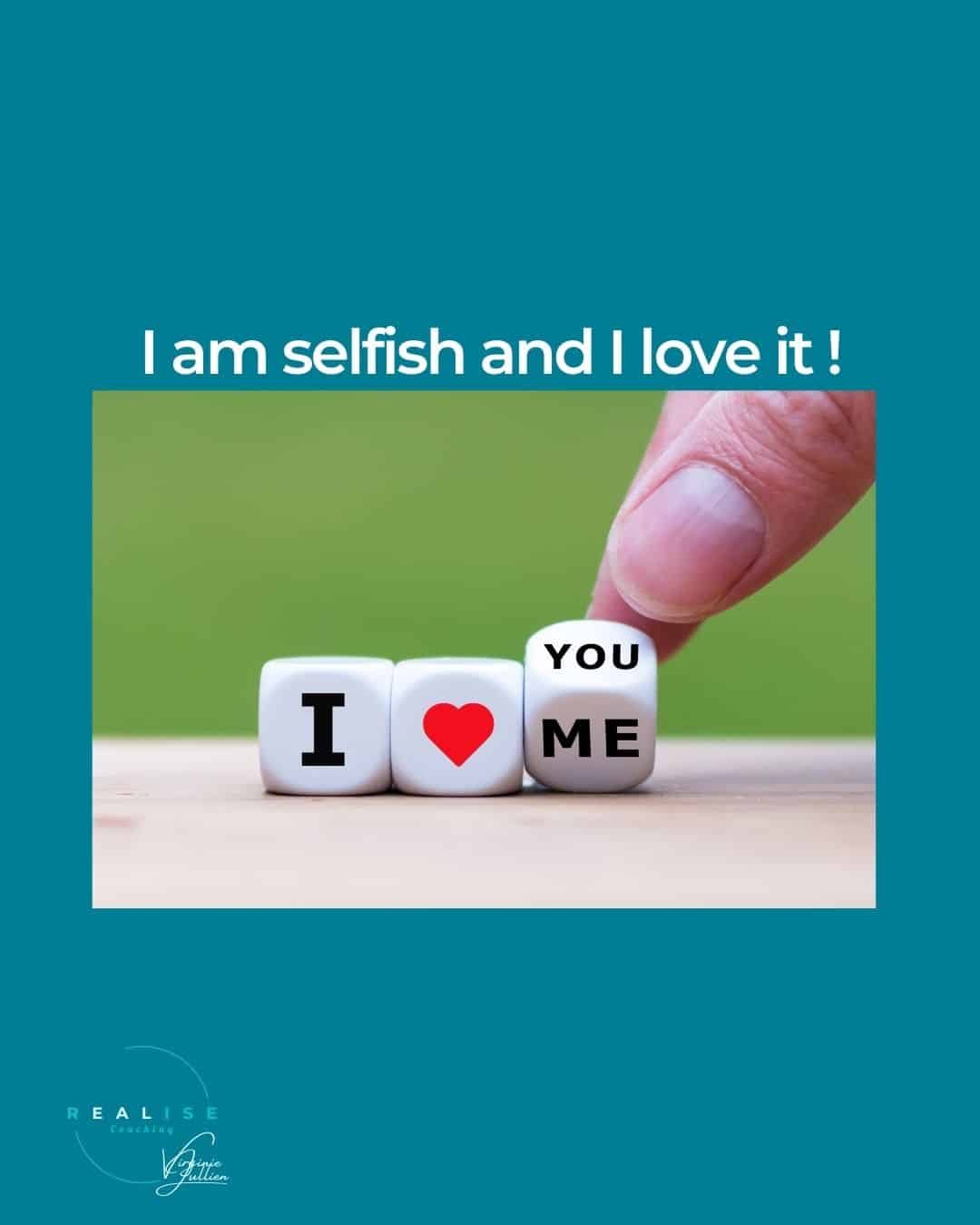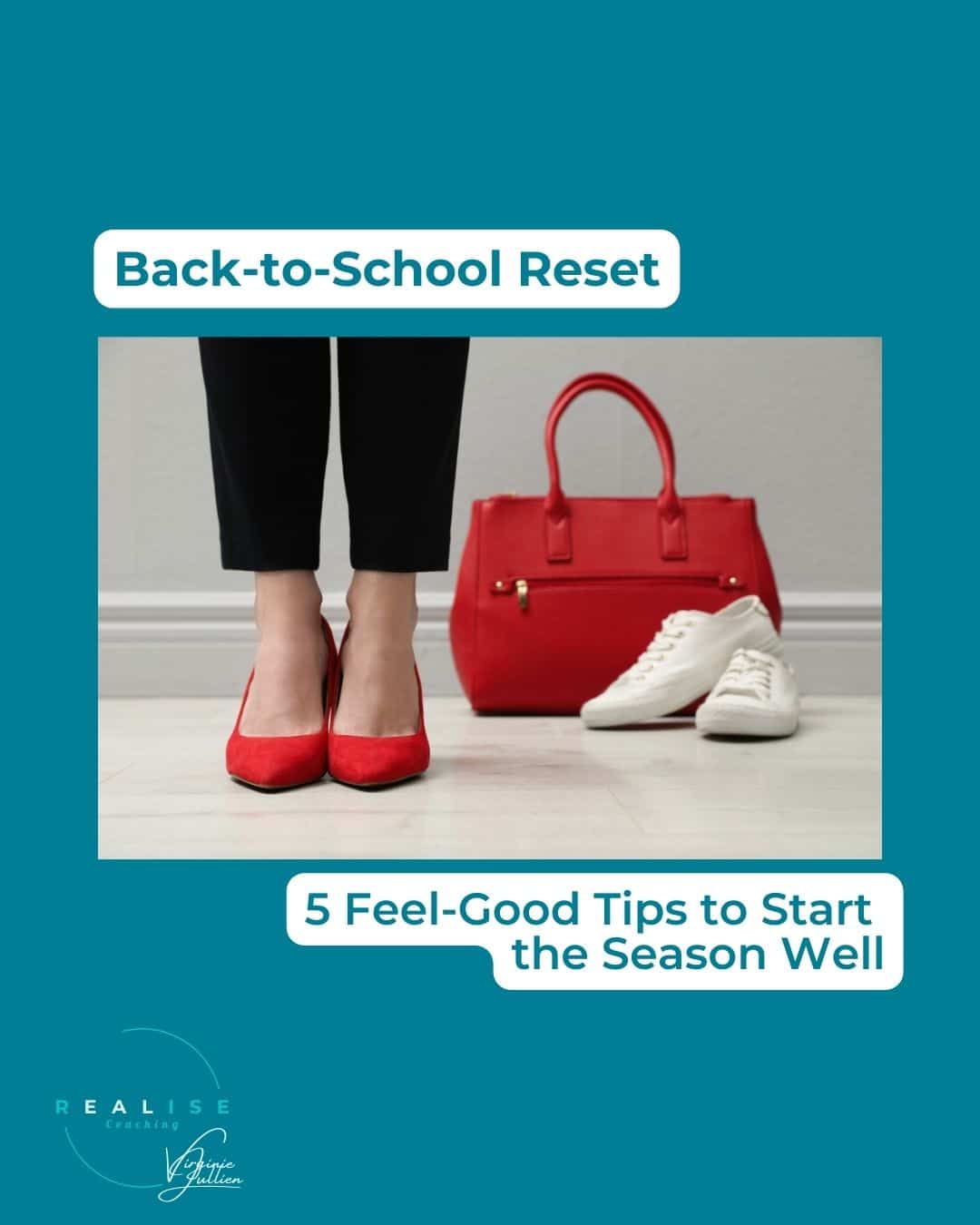Being Selfish Without Feeling Guilty ! – Article

This was the theme of two group sessions I facilitated last week… and it sparked so many rich discussions!
Why? Because the word selfish can be unsettling.
It carries a very negative connotation: “anything but that!”
In personal development, we often hear: “Taking care of yourself is not being selfish.”
But what if we flipped the script?
What if we dared to say: “Yes, I like being selfish, because taking care of myself matters.”
Selfishness versus Altruism
Let’s go back to the words:
Selfishness: excessive attachment to oneself, with disregard for others.
Altruism: a disposition to care for others, to act selflessly.
Two opposing poles… but neither is entirely “good” or “bad.”
Here’s what emerged from the group sessions:
Benefits of Altruism
Altruism is about creating connection, sharing, giving joy.
It’s also about feeling useful, recognized, appreciated (but is that still pure altruism?).
Limits of Altruism
Forgetting yourself, losing sight of your own priorities, burning out.
And sometimes letting others take advantage of your generosity.
Drawbacks of Selfishness
Isolation, withdrawal into oneself…
But above all: guilt, fear of being judged, fear of hurting, fear of disappointing.
Because it’s not so much the act itself that’s the problem… but what might be said about it.
So let’s talk about guilt
A feeling that shows up the moment we decide to put ourselves before others.
An emotion that clings to us, hard to shake off.
A consequence that can even ruin the time we had planned for ourselves, simply because we dared to say no.
This guilt is deeply ingrained in women.
It’s tied to a societal construct: a woman must care, please, devote herself.
So how could we not feel guilty when we dare to do otherwise, while the whole world seems to expect the opposite?
This guilt also carries the weight of fear:
-
fear of disappointing,
-
fear of being judged,
-
fear of being less loved.
To break free from it, we first need to build solid self-esteem.
Because when we love and respect ourselves, the opinions of others weigh far less.
Healthy Selfishness: A Precious Ally
Because yes, healthy selfishness does exist.
The kind that doesn’t exclude others, but begins with taking care of ourselves.
A form of selfishness that allows us to:
-
have moments just for ourselves,
-
enjoy pleasure without guilt,
-
return to our own needs and priorities,
-
preserve our energy,
-
realign with who we truly are.
In the end, practicing healthy selfishness means giving ourselves the chance to come back to others in a better way.
Finding Balance
It’s not about choosing between being selfish or altruistic.
It’s about allowing ourselves to navigate between the two, depending on the context.
Example:
A colleague asks me for help over the weekend. Saying no means preserving my family time.
A friend needs a hand with her children. Despite my fatigue, I want to be there for her.
In both cases, my decision is the right one… because it’s aligned with me.
What if…
We stopped with binary judgments? (“How selfish!”)
We allowed ourselves to be sometimes altruistic, sometimes selfish, without labels?
And what if we learned to welcome guilt instead of running from it… so that it would finally lose its weight?
Food for thought!
And you — in what area of your life could you practice a little more selfishness without feeling guilty?


Recent Comments